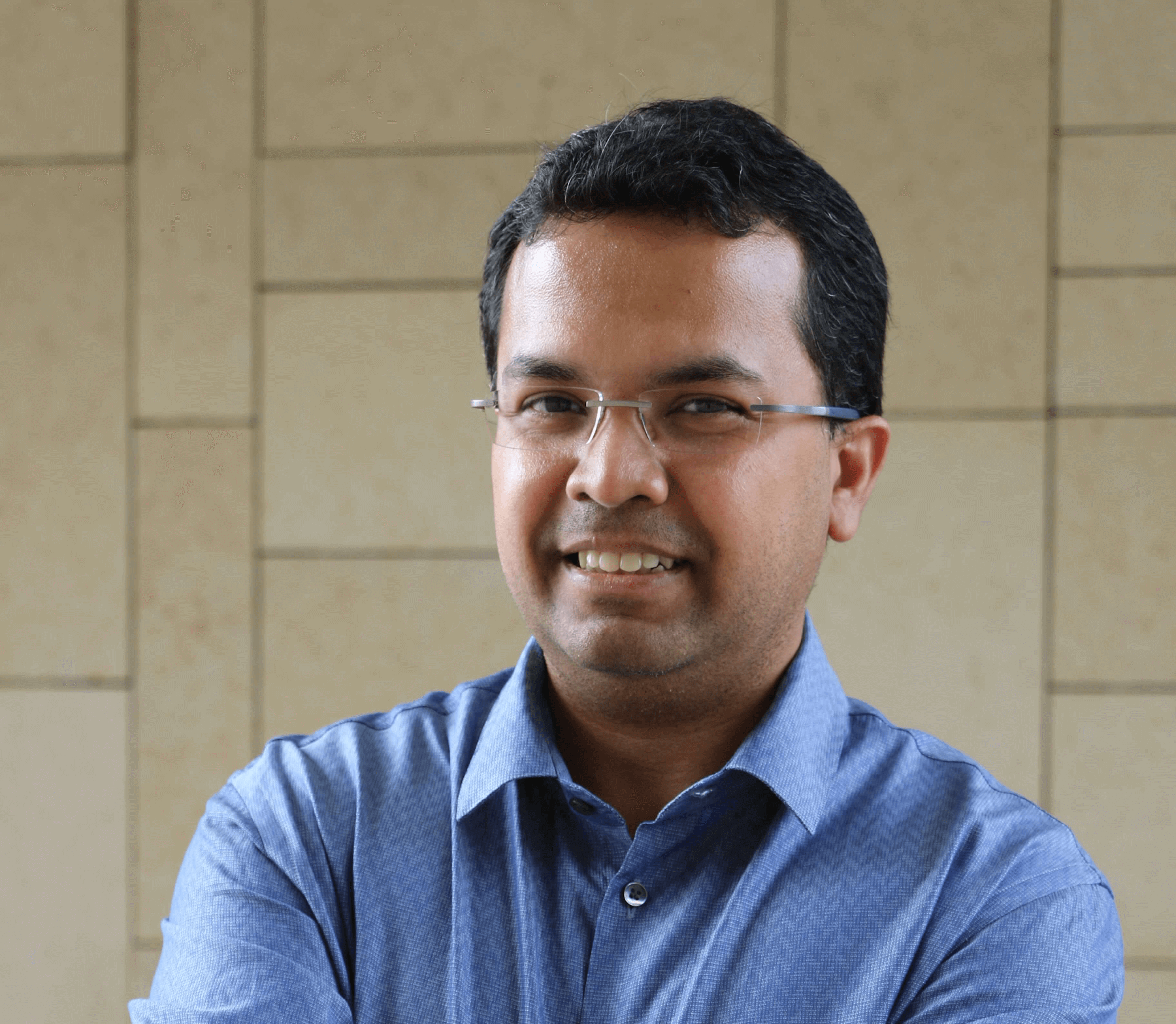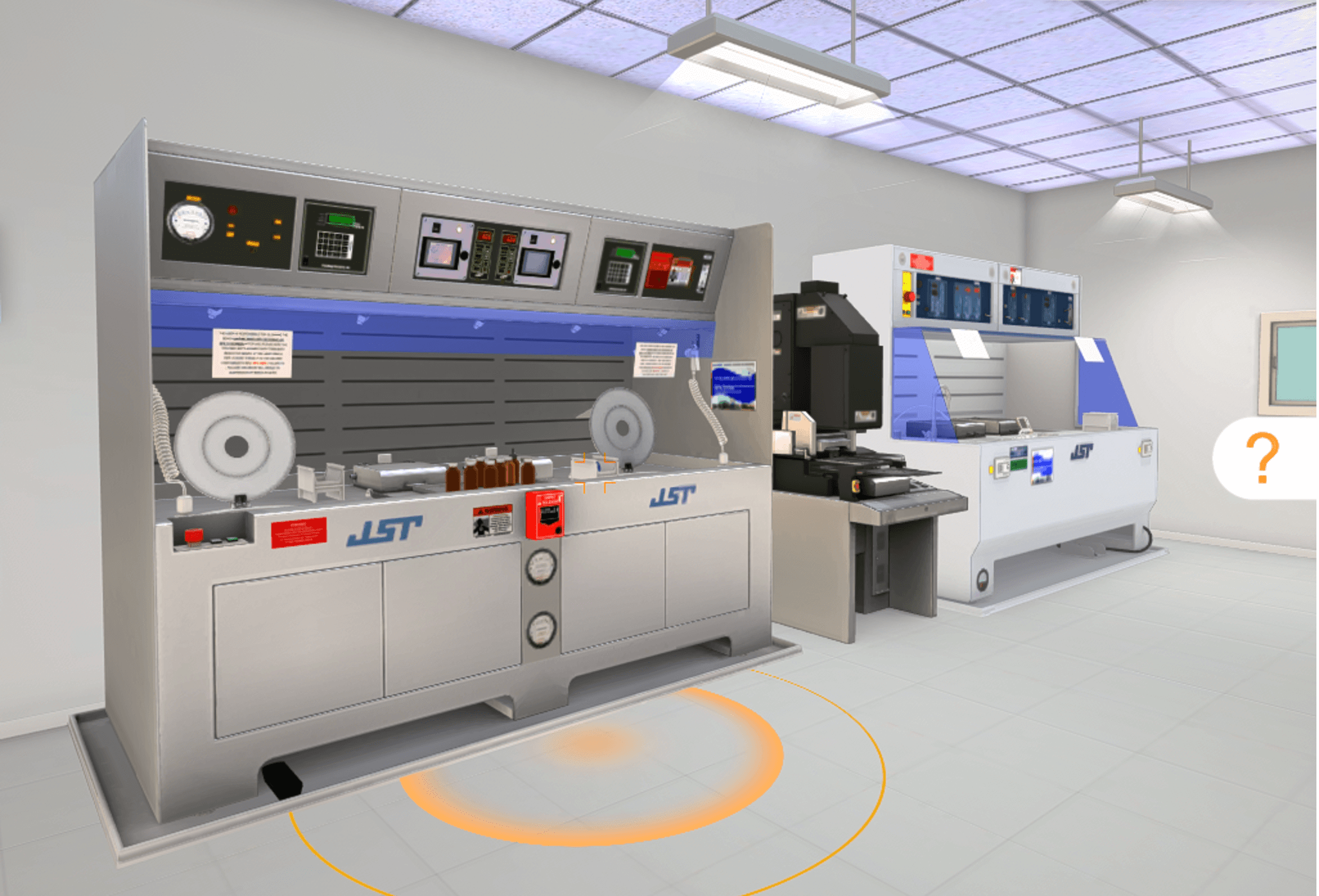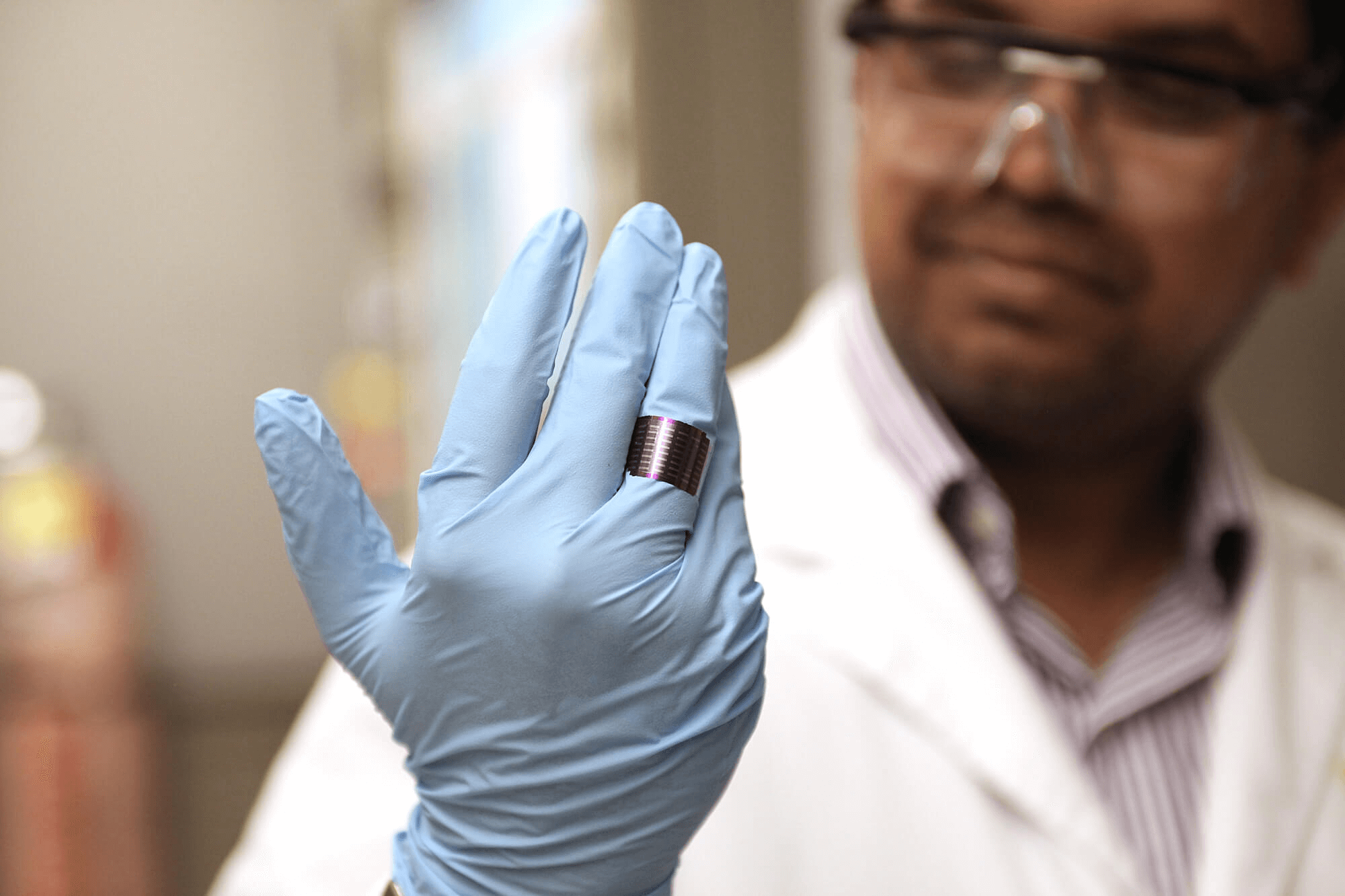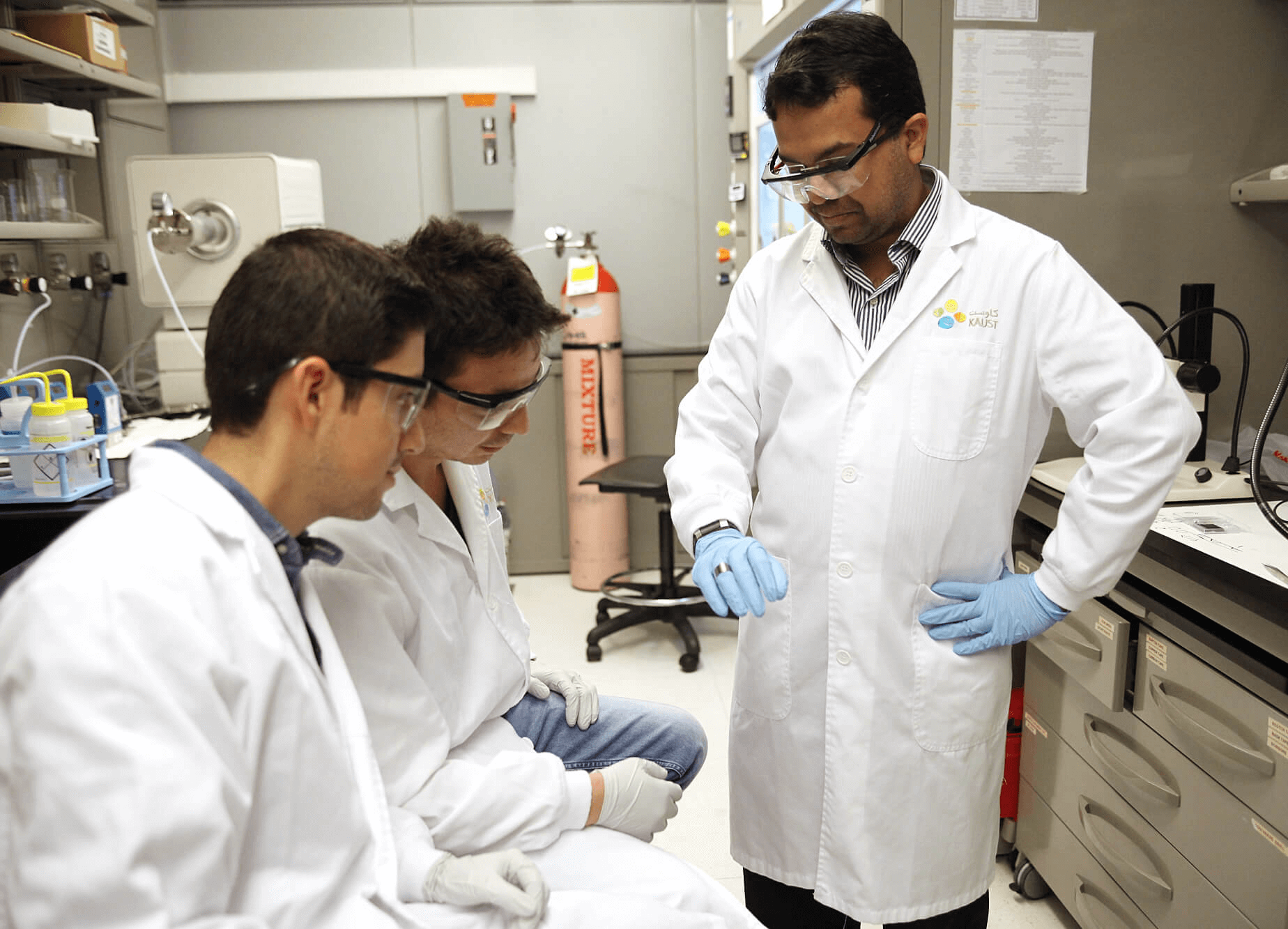Transforming electronics

KAUST Professor Muhammad Mustafa Hussain recently became a Fellow of the Institute of Electrical and Electronics Engineers, effective January 1, 2020, for his innovative research work. File photo.
By David Murphy, KAUST News
KAUST Professor of Electrical Engineering Muhammad Mustafa Hussain was recently elected as an Institute of Electrical and Electronics Engineers (IEEE) Fellow, effective January 1, 2020, for his "contributions to flexible and stretchable electronic circuits," IEEE stated. Hussain joins a select group of recipients, with the total number of Fellows selected in any one year not exceeding 0.1 percent of the institute's total voting membership.
"I feel humbled, honored and happy at the same time [to become a Fellow]," Hussain noted. "I am deeply grateful to my family, my past and present research group members, colleagues and mentors. I am sincerely appreciative of [KAUST] Professor Mohamed-Slim Alouini, as he educated me on the process, which played a critical role in my elevation. Finally, I am especially thankful to the Dean of the University of California, Berkeley College of Engineering, Professor Tsu-Jae King Liu, for nominating me."
Augmenting the quality of life with the technology of tomorrow
Before joining KAUST in 2009, Hussain completed both his master's degree and Ph.D. in solid state electronics in the area of electrical and computer engineering at The University of Texas at Austin. He is currently the principal investigator of the KAUST Futuristic Electronics and Integrated Nanotechnology Lab and is the principal ideator of the KAUST FabLab and vFabLab™.

vFabLab™ is short for Virtual Fabrication Lab, an online-based virtual environment that helps to train users in semiconductor fabrication processes. Image courtesy of Muhammad Mustafa Hussain.
Hussain focuses his research in the field of transformational electronics, seeking to introduce new applications for web integrated interactive electronics using complementary metal oxide semiconductor (CMOS) compatible processes. In the past, his research focused on using traditionally reliable—but physically rigid—electronic materials for flexible and stretchable electronic applications. As an emerging area of electronic applications, the concept of flexible and stretchable electronics has centered around naturally flexible and stretchable materials that can potentially be used as electronic applications.
"I am deeply passionate about trying new things, and I find that electronics is a great tool for that," Hussain said. "In the last 25 years, we have experienced a profound impact of information technology enabled by CMOS electronics, which are physically rigid. Going forward, we will see more and more integrated CMOS electronic systems as multi-functional Internet of Things/Internet of Everything devices for varied applications ranging from automation, robotics [and] safety to healthcare."

KAUST Professor Muhammad Mustafa Hussain shows off one of his flexible electronic devices in his lab at the University. File photo.
"The ultimate success of these electronics will depend on their cost-effectiveness because, as of today, half of the world's population does not have any access to any of them due to limited affordability," he continued. "Therefore, it is important to keep all these intriguing complexities in mind while designing CMOS electronics for future applications. As a researcher, I focus on all these aspects simultaneously to provide the most comprehensive solution to existing challenges or [to] innovate new applications [that] can significantly augment the quality of our life."
A passion for the technological empowerment of humanity
The overarching goal of Hussain's research is for the world to realize and benefit from interactive, freeform and democratized technology. He believes that due to the comprehensive nature of his work— along with the constant demand for the latest innovative digital technologies—he will continue to create research that not only benefits Saudi Arabia but society as a whole. Hussain's near-term goal is to ensure that his team's lab innovations will continue to be adopted by various industries and partners.
The overarching goal of Hussain's research is for the world to realize and benefit from interactive, freeform and democratized technology. He believes that due to the comprehensive nature of his work— along with the constant demand for the latest innovative digital technologies—he will continue to create research that not only benefits Saudi Arabia but society as a whole. Hussain's near-term goal is to ensure that his team's lab innovations will continue to be adopted by various industries and partners.

Professor Muhammad Mustafa Hussain (right) and former Ph.D. students Jhonathan Prieto Rojas (left) and Galo Torres Sevilla (center) work on a flexible electronics device in Hussain's lab on campus. File photo.
"We are the only group in the world [that], in the last seven years...built an exclusive program [that] can make a fully flexible and stretchable electronic system with the same performance and reliability like that of a traditional electronic system," Hussain explained. "Many of our lab applications have been adopted by non-electronic industries who are global leaders in their respective products. The impact of CMOS research is not only in Saudi Arabia but...also resonate[s] all over the world."
"I am categorically systemizing integration by simplifying complex engineering—not only through research but also through democratizing of electronics using advanced educational tools and technologies. Due to the world that we live in, I will continue my research in the same direction and will keep inspiring others," he stated.

